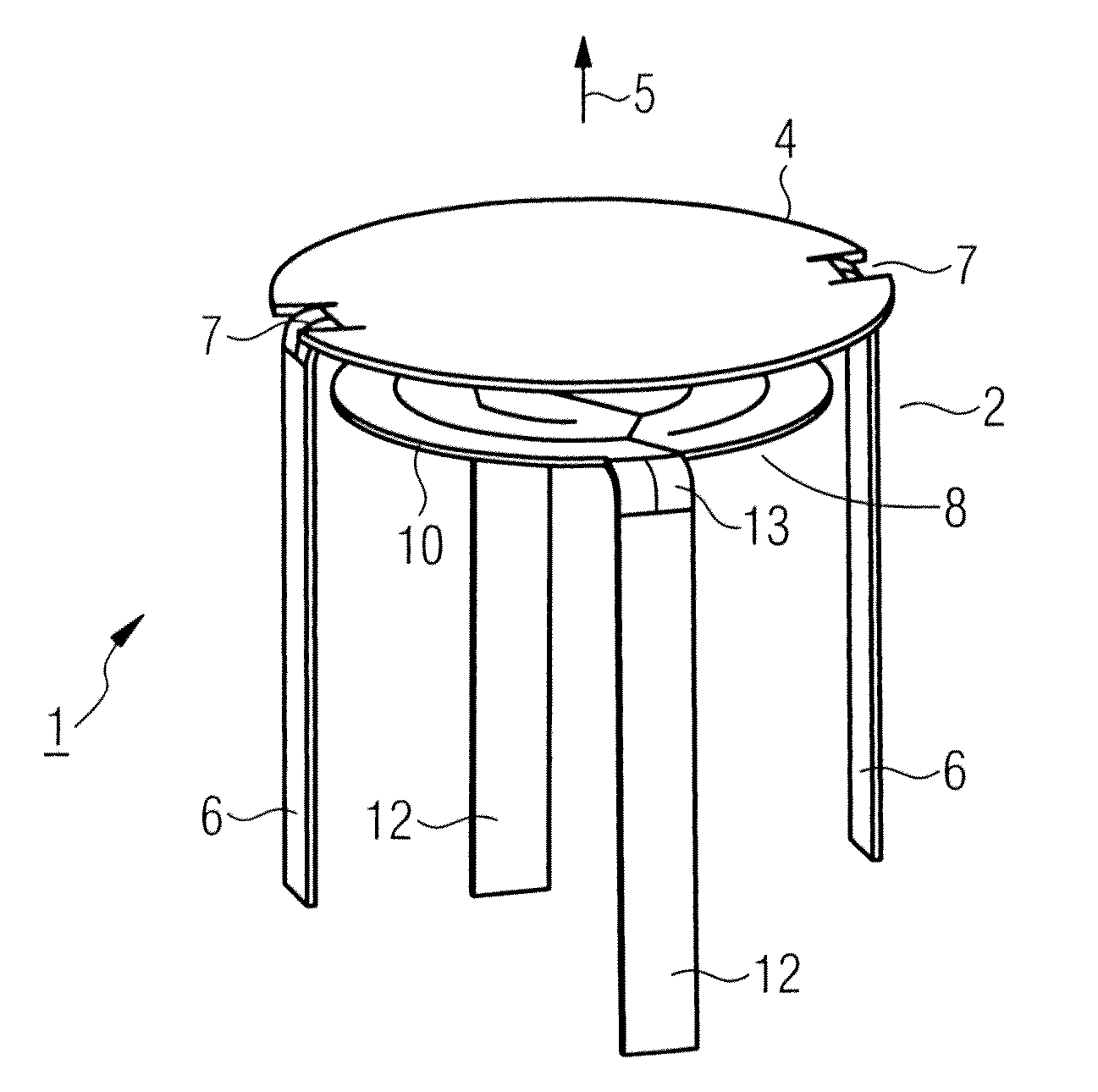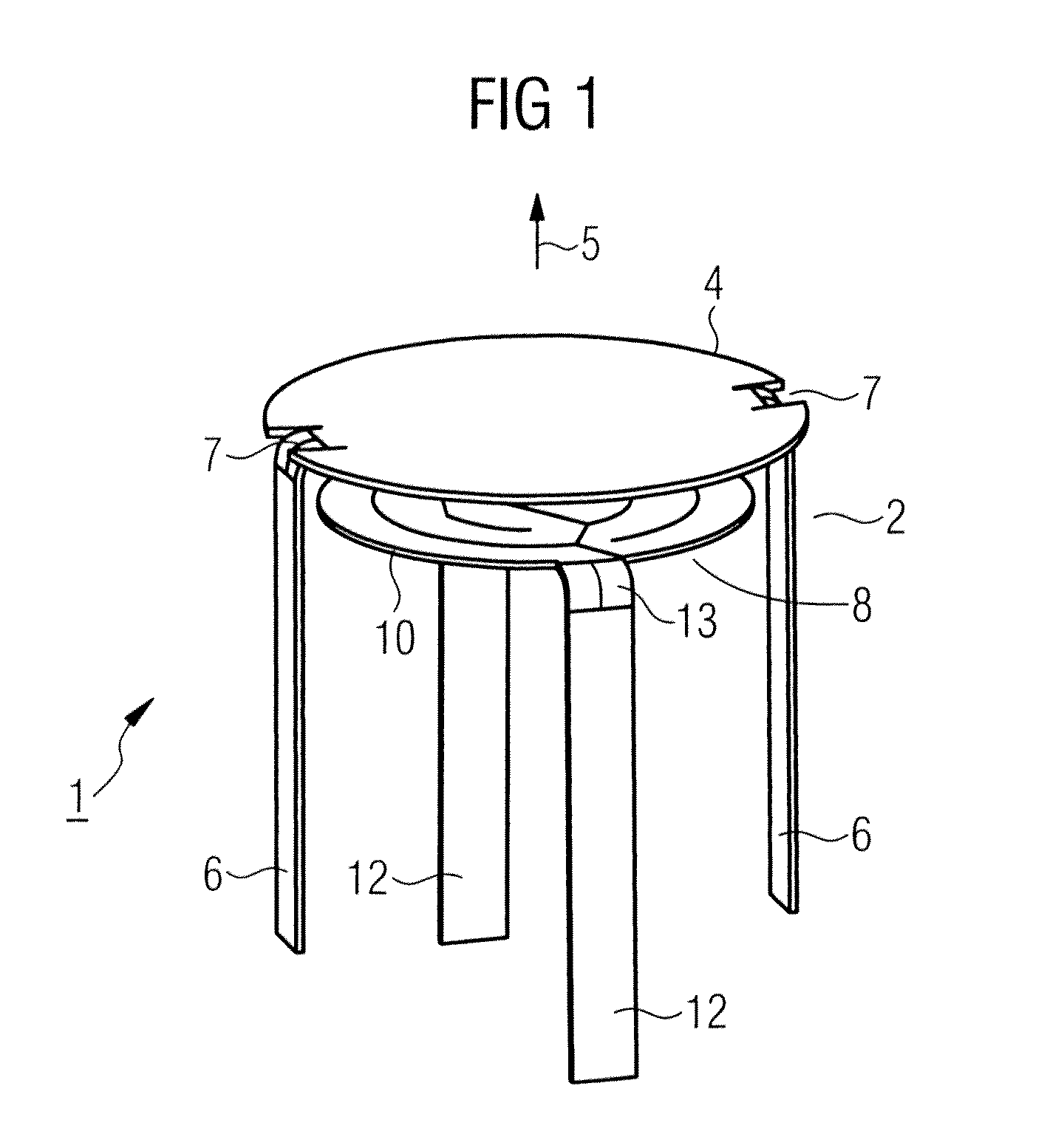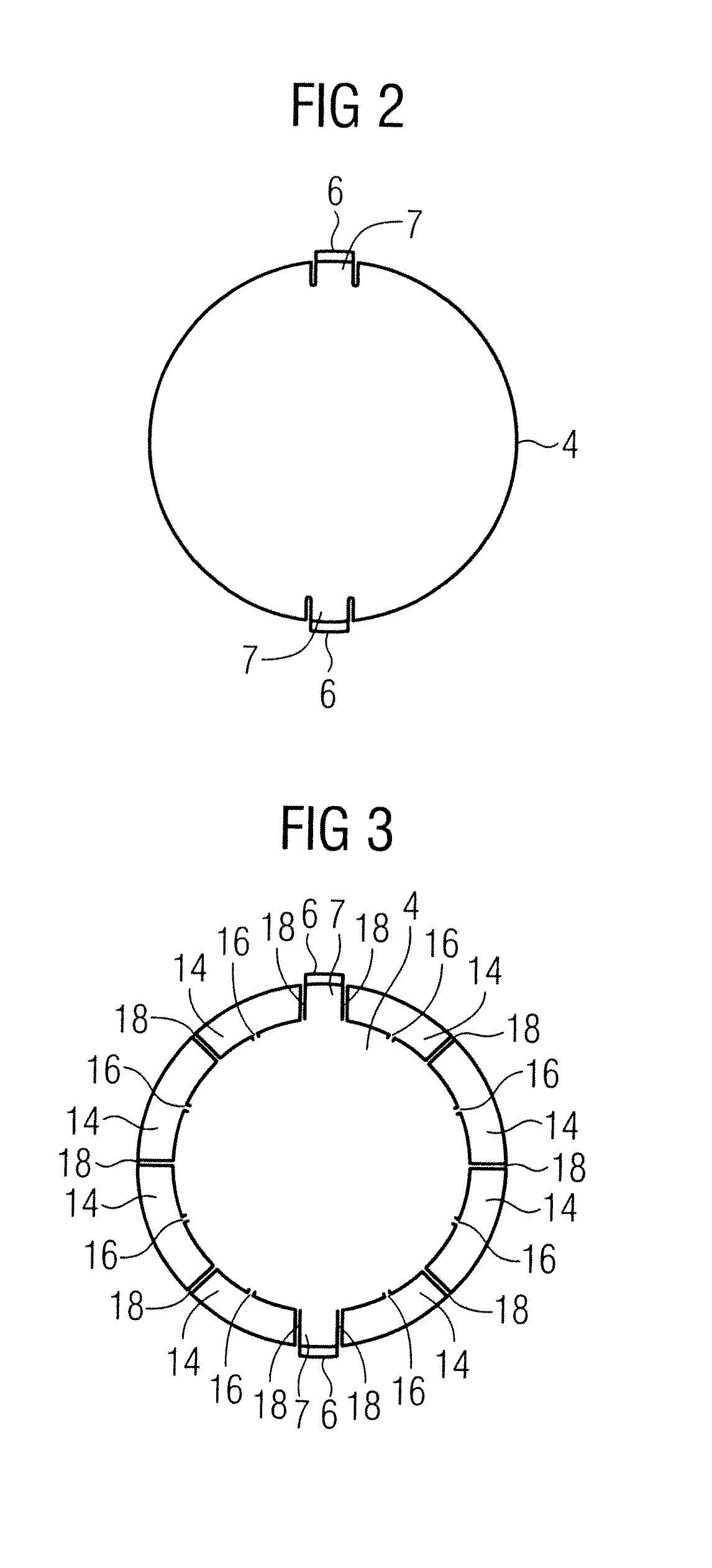Thermionic emission device
a technology of emission device and thermal emission, which is applied in the manufacture of discharge tube main electrodes, discharge tube/lamp manufacture, electrode systems, etc., can solve the problems of unwanted enlargement of focal spots, achieve high focal spots, avoid unwanted widening or defocusing of electron beams, and simple design
- Summary
- Abstract
- Description
- Claims
- Application Information
AI Technical Summary
Benefits of technology
Problems solved by technology
Method used
Image
Examples
first embodiment
[0037]the primary emitter 2 is shown schematically in plan view in FIG. 2. The circular primary emission surface 4 is connected in the connection regions 7 with the terminal lugs 6 (covered in plan view).
second embodiment
[0038]the primary emitter 2 is schematically shown in plan view in FIG. 3. The circular primary emission surface 4 is connected via webs 16 with segments 14 in the shape of circular ring segments 14. The segments 14 have no direct connection with one another and are separated from one another by gaps 18. The webs 16 are of designed such that a current flow from the primary emission surface 4 into the segments 14 is largely prevented so that the segments 14 do not heat and emit electrons. A bending of the electron paths corresponding to the electrons emitted from the outer edge of the primary emission surface 4 is prevented by the segments 14. Furthermore, the presence of the segments 14 reduces the possibility of electrons being emitted from the back side of the primary emission surface 4 facing away from the anode, that would be accelerated toward the anode and thus would enlarge the focal spot.
[0039]FIG. 4 shows in a lateral view a preferred variant of the thermionic emission devi...
PUM
 Login to View More
Login to View More Abstract
Description
Claims
Application Information
 Login to View More
Login to View More - R&D
- Intellectual Property
- Life Sciences
- Materials
- Tech Scout
- Unparalleled Data Quality
- Higher Quality Content
- 60% Fewer Hallucinations
Browse by: Latest US Patents, China's latest patents, Technical Efficacy Thesaurus, Application Domain, Technology Topic, Popular Technical Reports.
© 2025 PatSnap. All rights reserved.Legal|Privacy policy|Modern Slavery Act Transparency Statement|Sitemap|About US| Contact US: help@patsnap.com



